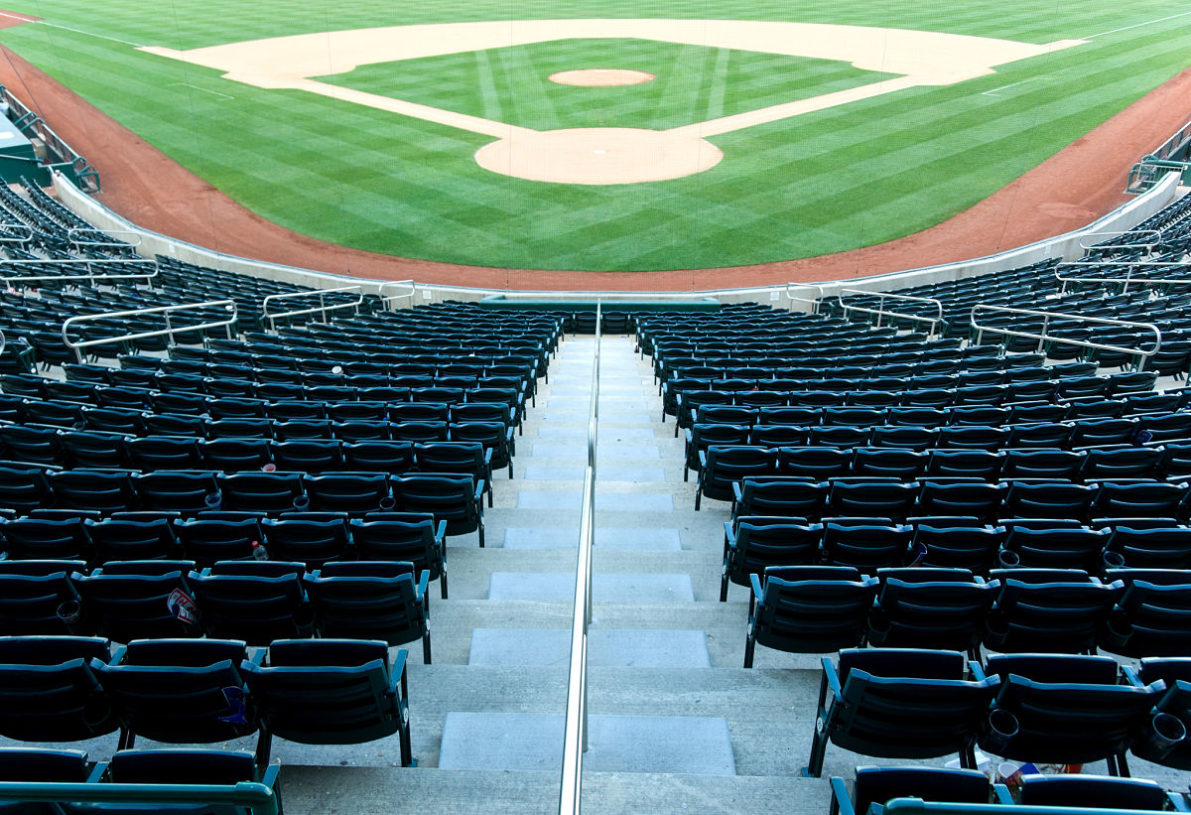Olin Expert: Regardless of outcome, MLB has already lost
- December 7, 2021
- By Sara Savat
- 2 minute read

Following the expiration of Major League Baseball’s collective bargaining agreement at 11:59 p.m. ET Wednesday, Dec. 1, team owners announced a lockout of the players. It is the league’s first work stoppage in nearly three decades.
What does that mean for the 2022 season? What do team owners and players stand to lose?
“It is hard to imagine a scenario where the current standoff between baseball owners and players would lead to lost games in 2022,” said Patrick Rishe, director of the Sports Business Program at Washington University’s Olin Business School and professor of practice in sports business.
According to Rishe, the pandemic-induced economic losses sustained by MLB teams during the 2020 and 2021 seasons add incentive to reach an agreement before the start of the 2022 season.
“Of course, that’s assuming that acrimony and egos don’t get in the way, which at times in baseball’s history would be deemed a heroic assumption,” Rishe said.
Baseball in December?
According to Rishe, to initiate a lockout with over three months before the start of the 2022 season is, in some respects, “much ado about nothing.”
“In any type of negotiation, real deadlines spur action. The recent settlement between the City of St. Louis and the Rams/NFL are evidence of this, as is the 2011 NFL season where players were locked out from March until August without regular-season games lost,” he said.
“As such, I suspect this lockout will get resolved between late February and mid-March.”
However, Rishe noted that the NBA lockout of 2011 and the NHL lockout of 2012 did cost those leagues games. “But those standoffs didn’t occur in the immediate aftermath of a global pandemic, giving me confidence smarter minds and cooler heads will prevail in MLB before games are lost in 2022,” he said.
No-win situation
From a public relations perspective, however, baseball has already lost.
“Baseball has fallen from being America’s pastime to a sport that feels past its time with younger generations of fans,” Rishe said. “It is now only the third most popular sports league in America behind the NFL and NBA.
“Games are too long, the style of play too dull and slow. Players and teams still lag behind their NFL and NBA peers in encouraging individualism through social media to help market the sport among younger fans.”
Rishe offered the following advice to team owners and players:
“It is crucial during these labor negotiations that both sides show discipline to not get the media involved to sway public sentiment, because if both sides spew the same public vitriol toward each other as they did when trying to return to play during the 2020 pandemic, this would only further amplify fan resentment and reticence to re-engage in 2022.”
Media inquiries
For assistance with media inquiries and to find faculty experts, please contact Washington University Marketing & Communications.
Monday–Friday, 8:30 to 5 p.m.
Sara Savat
Senior News Director, Business and Social Sciences
